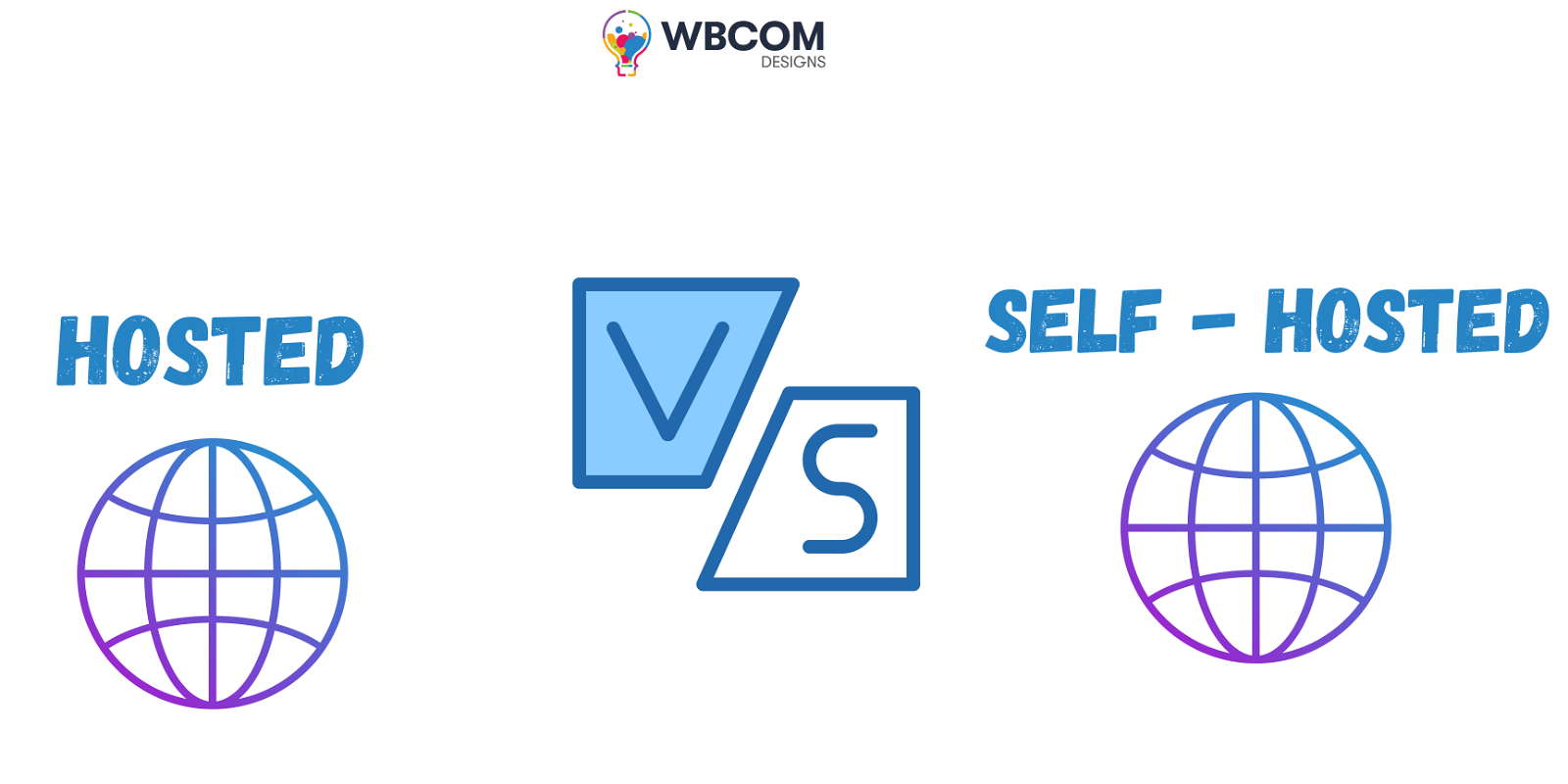A hosted website refers to a website that is built using a website builder tool provided by the hosting provider. It offers a user-friendly interface and requires no coding skills. On the other hand, a self-hosted website involves building a website from scratch using HTML, CSS, and other programming languages. It requires coding knowledge and expertise.
Hosted websites have limitations as they often come with predefined templates and limited access to the website’s backend. This restricts the ability to customize the website extensively. Self-hosted websites, on the contrary, offer unlimited customization options as developers have complete control over the website’s code.
When it comes to hosting arrangements, hosted websites are hosted on the hosting provider’s server. This means that the hosting provider takes care of all the technical aspects such as server maintenance, security, and software updates. Self-hosted websites, on the other hand, require the website owner to find a suitable hosting provider and manage all these technical aspects themselves.
Lastly, domain registration differs between hosted vs self-hosted websites. Hosted websites often come with a subdomain provided by the hosting provider. Self-hosted websites allow users to register their own domain name, through a domain registrar.
Hosted websites offer easy website building but limited customization, while self-hosted websites require coding skills but enable complete control and customization. Hosted websites rely on the hosting provider for hosting arrangements, while self-hosted websites require the website owner to manage their own hosting. Finally, hosted websites use subdomains provided by the hosting provider, and self-hosted websites allow users to register their own domain names.
Table of Contents
ToggleWhat are the pros and cons of hosted vs self-hosted websites?
Hosted websites, also known as website builders or web hosting services, offer a number of advantages. One key benefit is the simplicity and convenience they provide. Hosted websites require little to no technical expertise, allowing users without coding experience to create and manage their websites easily. Additionally, hosting providers typically offer customer support and handle server maintenance, ensuring the website remains functional and secure. This can save time and alleviate the need for advanced technical skills.
However, hosted websites also have their limitations. Customization options are often limited, as they are built on pre-designed templates. Users may have less control over the website’s functionality and design, restricting their ability to create a unique and personalized site. Furthermore, there is generally a recurring cost associated with hosted websites, which can become expensive over time. These recurring fees cover hosting, domain names, and additional features, potentially adding up to a considerable sum.
In contrast, self-hosted websites offer more control and flexibility. Users have the freedom to design and customize their sites to their liking. This allows for a unique and individualized web presence. Additionally, self-hosted websites enable the use of custom themes, plugins, and scripts, extending the website’s functionality. Furthermore, self-hosted websites generally have lower long-term costs, as users only need to pay for the hosting service and domain registration.
However, self-hosting does come with its own drawbacks. It requires technical knowledge and skills to set up and maintain the website, including server management, security, and updates. This can be challenging for individuals with limited technical expertise. Additionally, self-hosted websites can be susceptible to downtime, server issues, and security vulnerabilities if not properly managed. Thus, users must be actively involved in maintaining and optimizing their self-hosted websites.
While hosted websites offer simplicity and convenience, they limit customization options and may incur recurring costs. On the other hand, self-hosted websites provide more control, flexibility, and potentially lower costs, but require technical skills and ongoing maintenance. Ultimately, the choice between hosted vs self-hosted website depends on the individual’s needs, budget, and level of technical expertise.
Also Read: Self-Hosted vs Hosted eCommerce Stores: What’s Better for Your Business?
Hosted vs self-hosted eCommerce websites: which is best?
When it comes to setting up an eCommerce website, one of the most important decisions you need to make is whether to opt for a hosted or self-hosted solution. Both options have their own set of advantages and considerations, and understanding their differences can help you determine the best choice for your online business. In this article, we will delve into the key insights and factors that you should consider when comparing hosted and self-hosted eCommerce websites, ultimately aiming to help you make an informed decision about the most suitable platform for your specific needs. When deciding between a hosted vs self-hosted website, the key consideration is whether you prefer the convenience of a managed service or the control and customization options that come with self-hosting.
Self-Hosting Challenges
Self-hosting, the act of hosting and managing resources on your own infrastructure, comes with several challenges that need to be considered. Among the downsides of this approach are scalability limitations, initial costs, update responsibilities, and reliability concerns.
Scalability is a significant challenge when self-hosting. The infrastructure needs to be sized according to expected usage, which can be particularly challenging when faced with unexpected spikes in traffic. Scaling up to accommodate higher demand often requires additional investments in hardware, software, and network resources.
Initial costs can be substantial when setting up a self-hosted solution. Businesses need to invest in expensive hardware, such as servers, storage systems, and networking equipment. Furthermore, there may be costs associated with software licenses and the hiring or training of IT professionals to manage the infrastructure.
Update responsibilities pose another challenge. With self-hosting, businesses are solely responsible for keeping their infrastructure up to date. This includes not only updating the operating system but also patching and upgrading various software applications and tools regularly. Failure to do so can lead to security vulnerabilities and compromised systems.
Reliability is a concern when self-hosting as it requires businesses to establish redundant systems to avoid single points of failure. Additionally, businesses need to have a robust backup and disaster recovery strategy in place to ensure that data is protected and can be recovered in case of unforeseen events.
While self-hosting offers control and flexibility, it brings with it scalability limitations, initial costs, update responsibilities, and reliability concerns. These factors require businesses to carefully consider their needs and resources before deciding whether self-hosting is the right approach for them.
Employing Self-Hosting Services for Your Business
When it comes to hosting services for your business, there are various options available in the market. One increasingly popular approach is self-hosting, where businesses choose to manage and maintain their own hosting environment instead of relying on external service providers. Self-hosting services offer businesses greater control and customization options, ensuring that their online presence aligns with their specific needs and requirements. In this article, we will explore the benefits and considerations of employing self-hosting services for your business, delving into its advantages, potential challenges, and key factors to consider before making the transition to self-hosting.
Also Read: Top-notch WordPress Hosting Services for Enterprises 2023
How Does Self Hosting Work?
Self-hosting refers to the practice of deploying software applications on an organization’s infrastructure instead of relying on external hosting services. This approach offers numerous benefits, including greater control and flexibility over the software deployment process.
When an organization chooses self-hosting, it assumes the responsibility of managing and maintaining the application and infrastructure. This entails provisioning servers, installing the necessary software components, and configuring the network settings. By taking ownership of these tasks, organizations gain significant control over their software environment, ensuring that it aligns with their specific requirements.
Self-hosting also provides enhanced management and maintenance control. Organizations can customize the software and tailor it to meet their unique needs. They can implement security measures, such as firewalls and authentication protocols, to safeguard sensitive data. Furthermore, they have direct access to the hardware and can optimize it for optimal performance.
However, it’s important to note that self-hosting requires an adept IT team with proficient knowledge and skills. They must be capable of handling the complexities associated with the software deployment process, including troubleshooting technical issues and ensuring the availability and reliability of the application.
Self-hosting involves deploying software applications on an organization’s infrastructure. It grants control and flexibility, enabling customization of the software environment. However, it necessitates the involvement of an experienced IT team to manage and maintain the deployment effectively.
Also Read: Scale Up Your Website: How Hosting Can Affect Your Website’s Scalability and How to Optimize It
Why is Self Hosting Important?
Self-hosting is of utmost importance for organizations as it offers a wide range of benefits that cannot be overlooked. Firstly, self-hosting provides complete control over data. By hosting data on their own servers, organizations can ensure that sensitive information is not accessible to external parties. This gives them greater peace of mind and mitigates the risk of data breaches.
Enhanced data security is another advantage of self-hosting. Instead of relying on external vendors to safeguard their data, organizations can implement their own security measures, such as encryption, firewalls, and access controls. This allows them to tailor security protocols to their specific needs, ensuring a higher level of protection.
Self-hosting also provides extensive customization options. By hosting their own infrastructure, organizations have the flexibility to build and configure their systems according to their unique requirements. This enables them to optimize performance, scalability, and functionality, enhancing overall productivity.
Reduced dependency on external vendors is yet another crucial benefit. When organizations rely on external vendors for hosting their data, they are subject to their willingness and capability to provide continuous and reliable services. By self-hosting, organizations gain full control over their systems and can avoid potential disruptions caused by third-party failures.
However, self-hosting does pose challenges that organizations should carefully consider. Scalability is one such challenge, as organizations need to ensure that their infrastructure can handle increasing data volumes and user demands. Initial costs must also be taken into account, as setting up the necessary servers, equipment, and security measures can be financially demanding.
Furthermore, self-hosting also means taking responsibility for regular updates and maintenance tasks. Organizations need to allocate resources to ensure that their systems remain up-to-date, secure, and efficient. Lastly, reliability is a crucial consideration, as organizations bear the responsibility of ensuring that their systems are consistently available and perform optimally.
Self-hosting offers organizations complete control over data, enhanced security, extensive customization options, and reduced dependency on external vendors. However, challenges such as scalability, initial costs, update responsibilities, and reliability must be carefully addressed and managed. Overall, self-hosting is a critical aspect of data management that organizations should prioritize for their long-term success.
What Is A Non Self Hosting Website?
A non self-hosting website refers to a website that is hosted on a platform or service provider, rather than being hosted on its own server. Such websites have certain limitations and are unable to monetize effectively.
One of the primary limitations of a non self-hosting website is the lack of customization and control over the website’s functionality and design. Users are often restricted to using the templates and features provided by the hosting platform, limiting their ability to create a unique and personalized website. Additionally, these websites typically have limited storage space and bandwidth, which can hamper the growth and scalability of the website.
Monetization is also a challenge for non self-hosting websites. Most hosting platforms do not allow users to run advertisements or earn revenue directly through their websites. This limitation severely affects individuals and businesses looking to generate income from their online presence.
On the other hand, self-hosted websites provide greater flexibility and control. Custom web development allows users to create websites tailored to their specific needs, while open source software enables them to modify and enhance the website’s functionality. These types of websites allow for monetization through methods like display advertising, affiliate marketing, and selling products or services directly.
Understanding the difference between hosted and self-hosted websites is crucial to making informed decisions about website development and maintenance. It is essential to weigh the limitations imposed by non self-hosting websites against the benefits and possibilities that come with self-hosted alternatives.
What Makes A Self Hosting Website?
A self-hosting website refers to a website that is hosted on a personal server or a web hosting service chosen by the website owner. The process of self-hosting involves purchasing a domain name, selecting a hosting provider, and configuring the website using various tools and technologies.
One of the key factors that make a self-hosting website advantageous is ownership. When hosting a website on a self-hosted platform, the website owner has complete control over the website’s content, design, and functionality. Unlike websites hosted on free platforms, self-hosted websites are not subject to the terms and conditions imposed by the hosting provider, ensuring complete autonomy.
Another factor is the unlimited capabilities that self-hosting offers. Website owners can have access to countless plugins, themes, and customization options, enabling them to create a unique and tailored website that suits their specific requirements. This level of flexibility allows for endless possibilities in terms of design, functionality, and integration with other platforms or services.
Furthermore, self-hosting provides the ability to monetize a blog effectively. With ownership comes the freedom to choose how to generate revenue from the website. Website owners can implement various monetization strategies such as displaying advertisements, selling products or services, or promoting affiliate partnerships. The owners have the freedom to maximize their blog’s earning potential, directly benefiting from the website traffic and engagement they generate.
Conclusion:
When deciding between a hosted vs self-hosted website, it’s essential to weigh the convenience of a managed service against the autonomy and control offered by self-hosting. A self-hosting website offers several key advantages, including ownership, unlimited capabilities, and the ability to monetize a blog. With complete control over the website’s content and design, a self-hosted website provides countless opportunities for customization and revenue generation.
For those looking to make the most out of their online presence, scalability is one of the key benefits of self-hosting. With their own server, website owners have access to unlimited storage and bandwidth, enabling them to maximize their website’s potential with no limits or restrictions. This ensures efficient performance and smooth operations even as traffic increases over time.
For those looking to launch an e-commerce platform, self-hosted solutions are the way to go. Self-hosted ecommerce platforms give website owners complete control over their store’s design, functionality, and payment gateways. This ensures that the customer experience is tailored to the owner’s specifications and goals, including product selection, pricing models, shipping options.
Interesting Reads
Self-Hosted vs Hosted eCommerce Stores: What’s Better for Your Business?
6 Best Reporting Plugin For WordPress On The Internet
How E-Commerce Innovations are Transforming Event Management








